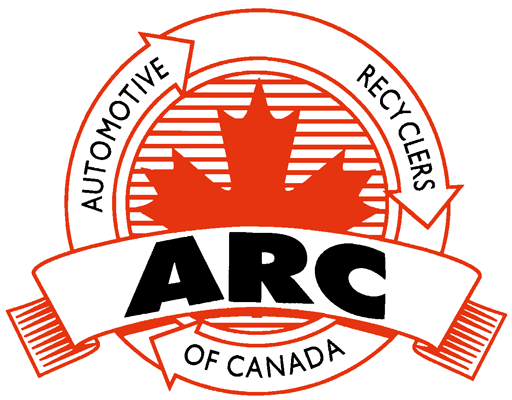The Automotive Recyclers of Canada (ARC) have developed a new checklist for Canadian auto recyclers. CAREC, the Canadian Auto Recyclers’ Environmental Code, sets a national standard for environmental safety and best practice, says Managing Director of ARC Steve Fletcher.
The code was developed in the wake of the vehicle-recycling program, Retire Your Ride. Inspired by the National Code of Practice for Automotive Recyclers (CoP). CAREC expanded the scope of the Code to include all end-of-life vehicles—not solely models 1995 and older—and elaborated on incentives for participating recyclers.
The purpose of CAREC is twofold, Fletcher says. The first is as a guide for Canadian recyclers to better understand the industry’s laws and regulations.
The 33-page document summarizes everything from Federal and Provincial legislation to a breakdown of the proper handling of hazardous materials.
“Many of the rules and regulations and acts aren’t written with us in mind, they’re written for people in the automotive service sector or just general businesses. But CAREC takes the laws and acts and puts them into plain language for recyclers,” he said, adding that the code is structured to parallel how a car moves through recyclers’ facilities. “It becomes an operational guide for the recycler to be proactive in what they’re doing.”
The second component of CAREC involves a series of third-party audits, where every participating facility has to score 75 percent or higher in order to retain both provincial and national memberships. The auditors, currently hired by ARC, use CAREC as a rubric.
“CAREC helps to educate the recycler on what the auditor is looking for – what’s the minimum practice, what’s best practice – and it allows them to do the checklist themselves,” said Fletcher. “The philosophy behind it is that there’s a continual improvement, you’re never a perfect recycler, you always have something to work on… there’s always a better way to do it, a faster way to do it, a cheaper way to do it.
“We’re finding now that people are executing their pollution prevention plans and they’re saying ‘When can I get audited again because I want to make sure I’m going in the right direction and I want to do some more things.’ So it’s really continual improvement.”
For the time being, ARC will continue to develop CAREC by consulting with various provincial associations as to “what is reasonable, what is cost effective and what will continue to drive good behaviour,” said Fletcher. “We think it’s going to be an every-three-year audit, but no firm decisions have been made.”
CAREC was first developed by both ARC and Summerhill Impact, the producers of Retire Your Ride. However, ARC has since taken over the rights and oversight to the project.
What has been determined, according to Fletcher, is that CAREC is around to stay. He says they doubt it will be replaced. Ideally, they want it to continue to grow.
“An ideal end to it is that government recognizes it as the standard and begins to implement it in regulation. Right now only ARC members are CAREC audited, so we’re 420 out of a 1,000 recyclers out there. And like any business, we need a level playing field,” he said.
Inside CAREC: The professional auto recycler’s new code of practice
By Caitlin Choi, Collision Repair Magazine
